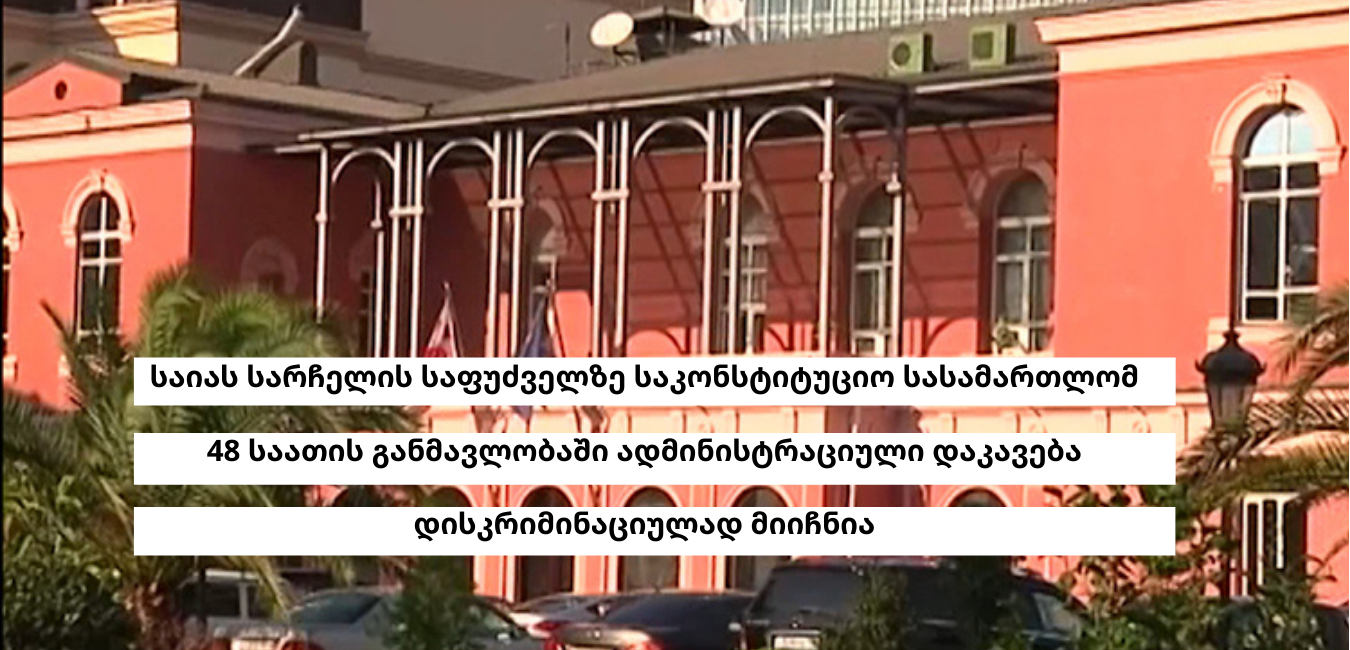


On December 29, 2020, the Constitutional Court upheld another lawsuit filed by GYLA on the “Irakli Jugheli v. the Parliament of Georgia” case. The Constitutional Court declared the norm, according to which, if the 12-hour period of detention of a person coincided with the non-working hours of the court, the detention of such person lasted for 48 hours, unconstitutional. Working hours in the courts of the first instance and appellate instance are determined from 09:30 am to 6 pm. The period beyond this time is considered as non-working time.
According to the disputed norm, if the first 12 hours of detention coincided with working hours, the administrative detention of such person may not last longer than 12 hours, and if 12 hours after the detention of a person passes during non-working hours of the court, the detention period of such person lasts 48 hours (two days). For example, if a person is arrested at 6 pm, the 12 hours of detention of such person will end at 6:00 am the following day, therefore, such person should have been detained for two days, since 12 hours of detention expired when the court had no working hours (6 am is a non-working time for the court). In the second case, if a person is arrested at 5 am, 12 hours after the arrest of such person passes at 5 pm when the court is still working. The administrative detention of such person, in this case, may not last longer than 12 hours and the detention shall end at 5 pm.
Thus, the questioned norm put those persons whose 12 hours of administrative detention passed during non-working hours, in an unfavorable position. Such persons spent 2 days longer in the temporary detention isolator rather than those whose 12-hour administrative detention period ended during the court's working hours. The Constitutional Court found such a different treatment unjustified and therefore discriminatory. The court declared the norm of the Code of Administrative Offenses, which provided for the possibility of administrative detention of a person for 48 hours, unconstitutional.
Within its decision, the Constitutional Court cited the following example to justify why the different treatment was unreasonable: A person arrested on December 29, 2020, at 11 pm, will appear in court and be released from administrative detention the following day, at 11 am on December 30, 2020, and if a person is arrested 5 hours earlier or in other words at 6 pm on December 29, 2020, he/she is in administrative detention for two days and may appear in court on the third day, on December 31, 2020, before 6 pm - later than the one detained 5 hours later than him/her.
The Constitutional Court has postponed the annulment of the disputed norm until June 1, 2021, for the Parliament of Georgia to set a shorter period of administrative detention for those whose 12 hours of detention expire during non-working hours of the court.
This case was conducted by GYLA with the support of USAID / PROLoG.
ჯ. კახიძის #15, თბილისი, საქართველო, 0102 ; ტელ: (995 32) 95 23 53; ფაქსი: (995 32) 92 32 11; ელ-ფოსტა: gyla@gyla.ge; www.gyla.ge
15, J. Kakhidze str. 0102, Tbilisi, Georgia. Tel: (995 32) 95 23 53; Fax: (995 32) 92 32 11; E-mail: gyla@gyla.ge; www.gyla.ge